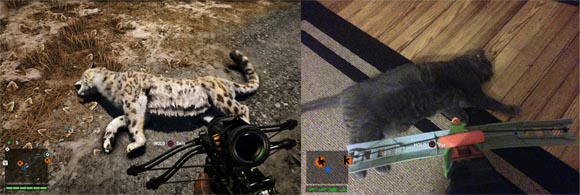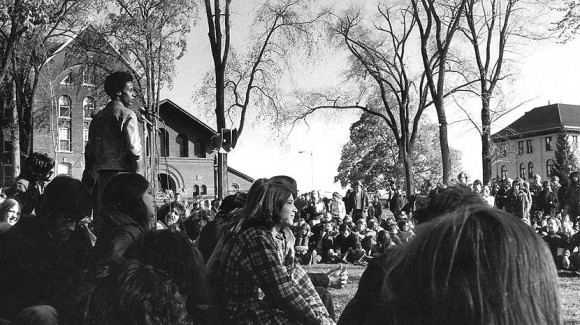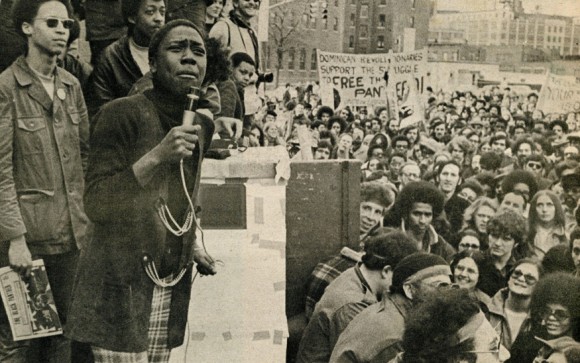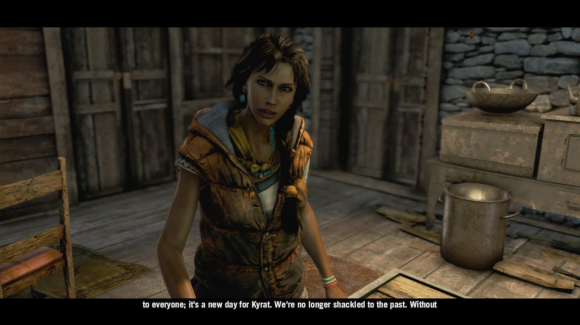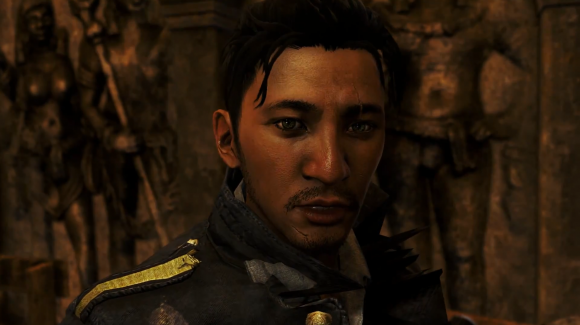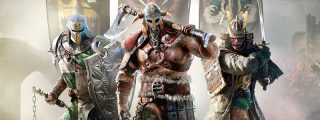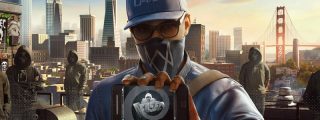Playing Far Cry 4 places me in something of a surreal mind blast of a position, something one doesn’t typically experience every day. It’s not a common affair for a video game to remind you of people you know, or take you for a walk in your own shoes. For me Far Cry 4 was one of those rare cases.
The set up is Ajay Ghale, the protagonist of Far Cry 4, is the son of Mohan Ghale, a rebel who founded an armed revolutionary group called the Golden Path to fight for the freedom of the fictional country of Kyrat from the blood soaked arms of outside dictator Pagan Min. It’s been 25 years since Mohan’s war began, Mohan has long since passed away and now two young upstarts, Amita and Sabal, are tying to steer Ajay in the direction they think his father wanted him to go.
So it’s not every day you play a video game tale parallel to your life story and maybe it’s not every day you’re born the son of revolutionaries. I am a Panther cub, the child of a member of the Black Panther Party, a militant socialist group active during the United States civil rights era. The Panthers were initially black nationalists, and in their fight they sought the liberty and unity of the black community within the United States, however their struggle eventually opened up to fight for the equal rights of all people. Black Power to Black People became All Power to All People.
Jamal Joseph (back then Eddie) similar to Amita or Sabal, came into control of the New York Chapter of the Black Panther Party at an incredibly young age. One day he might be patrolling the streets with a shotgun, the next calling for the burning of Columbia University’s campus, a school in an ironic twist of fate he now teaches at. However unlike the struggle in Far Cry it wasn’t all bullets and flames. It was about people. So just as much as he might patrol or give heated speeches, you could find him working in the kitchen of a breakfast program for kids whose parent’s couldn’t afford to feed them, tutoring those who needed extra education, and running free health clinics for people who couldn’t cover a doctor’s visit.
Far Cry 4 works for me on several levels. As a video game, it has a lot of pure fun, and while the story had some cringe worthy moments that made me want to pull my teeth out with a wrench, it was overall highly entertaining. The game has some engaging, Non-Amita and Non-Sabal characters. I scored it favorably and it’s made the honorable mentions in my Game of the Year. However I struggled to see the game as a painting of a people’s revolution perhaps because I’m more familiar with the world they portrayed than the Average Joe might be.
I suppose the first and deepest disconnect for me are the expectations placed on Ajay by the revolution. This requirement that he be just like his father. I’ve certainly had moments when I’ve had a shadow to step out of and a name to try and live up to, but in most of my experience a name is just a name. The moment “Jamal Joseph” is uttered I’ll sometimes get wide eyes and perked ears, accompanied with a “Yes I know your father” though I can say the times that’s followed with “Now take this gun and fight for our cause” are quite minimal.
I think I would have less of a problem with Ajay’s approach to this revolution if I knew more about his thought process. Ubisoft initially introduces him as a strong silent protagonist only to slowly retcon this as the game progresses. Once the figurative duct tape is peeled off Ajay’s mouth it’s pretty clear he knows the fight he’s in, is concerned for the people of Kyrat and stands against dictator Pagan Min. The “why” he gives a damn about all of this however is completely lost. It’s not Ajay’s war, he could leave the country at any time and choose not to fight. As a Panther Cub I haven’t been without my own opportunity and even with a pull to fight certain causes. The struggles I chose always gave me a strong reason to care while other causes I didn’t agree with were relatively easy to walk away from. One such example of a group I’ve turned my back on is the New Black Panthers, a group that operates more as supremacists than freedom fighters and misses the point of the original Black Panthers (who have denounced them) by trying to instigate a deep schism in race and class, rather than unify all people from all walks like the Black Panthers did in their later years. In fact much like Mr. Ghale, attempting to recruit me was a political move on their behalf, and one I wasn’t willing to be a tool of.
Now one detail I did find neat was Ajay’s engagement with Willis. A Non-Playable Character that works for the CIA and Ajay is forced to do several missions for. Why? Willis hands Ajay files on his dad, and Ajay finds them useless because they’re covered in black bars. This one detail is absolutely true to life, the FBI’s handed me files on my own father and they may as well have handed me a black sheet of construction paper.
Now Far Cry 4 in part seems to be a story about a country that just can’t be fixed. It takes its cues from portions of the Middle East, Africa and Central America where the second the country is overturned out the hands of one kind of evil, they’re instantly controlled by another. This is important because it informs us a bit as to how Amita and Sabal were conceived. They don’t really seem to be conceived as revolutionaries so much as future dictators. Their doctrines are very thinly veiled. Amita wants to turn Kyrat into a drug state, while Sabal will watch over it with his own brand of dangerous religious fervor.
I would have liked to see maybe a little more thought placed into Amita and Sabal. The revolutionaries I grew up with like Jamal and Afeni Shakur had a passion for the banner they served that was very similar to that of Amita and Sabal. However where the real world revolutionaries differ is that their passion wasn’t for any one ideal, but rather for people, for legitimately wanting freedom and a place for themselves and others who were mistreated in the world. Amita kind of makes a point for women’s rights, Sabal kind of makes a point about religious freedom, but they both fall flat as they don’t seem to care about the individual. The Panthers weren’t perfect people and much like Amita or Sabal they erred in their ways at the time, but their focus and doctrines also weren’t so laser guided. I mean what’s the land of Kyrat without an initial love for the people that live there? Certainly Ajay’s side missions mostly seem to be focused around the personal, humanitarian effort, making sure each person and their family is safe and secure. Ajay even goes to Kyrat based on a strong love for his mother.
The Panthers read books and were versed in politics and law as much as they were in how to use a gun. The idea of the Panthers was to give a bit of independence and free thought to each individual. The folks of Golden Path seem largely uneducated, just random folks that picked up a gun and fired it off because they missed their old king or deity told them to. Blind fervor may be the outsider’s view of a lot of revolutions, but the people in it often follow their own individual belief systems. While I don’t expect exposure to every last Golden Path NPC, the fact no one had their own free thought aside from Amita and Sabal, always needing Ajay to be the tie breaker, felt off.
The other thing I would have liked to see that you perhaps don’t see captured in most tales of revolution? These guys and gals fighting the revolutions liked to have fun. They fought hard, they worked hard, and since they could die at any moment they played hard. This seems almost perfect for a game like Far Cry 4 where everything but the central campaign is just based on having a blast. There’s nothing stopping Sabal and Ajay from maybe getting a beer together or maybe having opium obsessed Amita breaking out that pipe… Okay maybe not so much on the last one.
Well into the 80s and even the 90s I grew up around people like the ones Far Cry 4 tries to tackle and saw how they ran revolutions. I’ve been in Ajay’s shoes of what it means to have a revolutionary as a father. I was weirdly engaged in Far Cry 4’s story just to see what their take on it would be, and if it at all matches up, which in a lot of ways it didn’t. I think they crafted a really fun game with a few story high points and interesting characters outside of Golden Path’s two headed elephant of Amita and Sabal. As far as the Golden Path’s revolution itself is concerned? Well if you want to interview someone who’s lived it, I’m right here Ubisoft.

